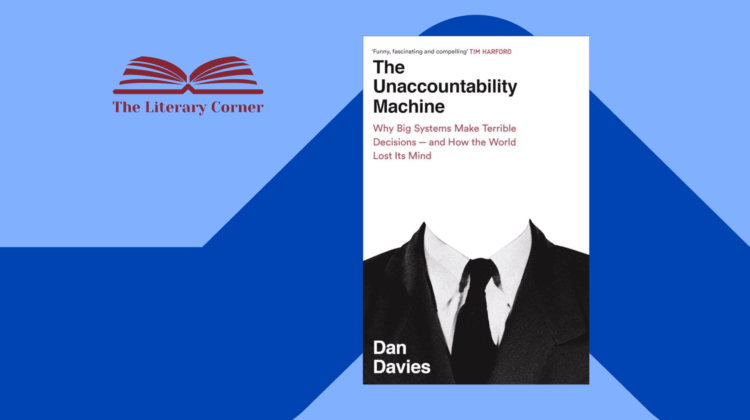
The Unaccountability Machine
Title: The Unaccountability Machine
Author: Dan Davies
Pages: 304
In The Unaccountability Machine, Dan Davies plunges into the murky waters of organisational decision-making, illuminating why so many of the world’s largest systems—from financial markets to governmental institutions—consistently produce results that no one claims to have wanted. With incisive analysis, Davies dissects the mechanisms by which collective entities become strangely autonomous, producing decisions that reflect neither the desires nor intentions of their individual members.
Davies’ exploration finds its philosophical roots in the work of Stafford Beer, a pioneering figure in management cybernetics who, decades ago, proposed a radical idea: organisations should be viewed as artificial intelligences, systems with self-sustaining decision-making capacities. According to Beer, just as an individual mind regulates itself to function smoothly, so too could organisations if properly structured. His solution, “management cybernetics,” advocated for self-regulation within organisational frameworks to avert the exact types of crises we face today. Beer’s warnings, however, were largely ignored, and Davies argues that we are now seeing the full consequences of this oversight.
Davies’ approach is a compelling blend of intellectual curiosity and journalistic scepticism, balanced with a heavy dose of cynicism. He doesn’t merely argue that bureaucracies and systems have gone awry; he paints a vivid picture of how they do so. With references to historic economic collapses, political debacles, and institutional inertia, Davies critiques the “unaccountability machine” that modern society has become—a juggernaut of poorly aligned incentives, miscommunications, and inertia that spares no one.
This book is both a history and a cautionary tale. Davies brings to life the untapped potential of Beer’s ideas, questioning what might have been had the world paid heed to his warnings. His writing is as much an indictment of those who ignored Beer’s insights as it is a reflection on the unintended horrors that result from unchecked organisational autonomy.
The prose is sharp, often darkly humorous, yet it refrains from overcomplicating the core message: large systems tend to make terrible decisions because they are rarely, if ever, truly accountable to anyone. Davies’ analysis is not just for policy wonks or economic theorists; it’s essential reading for anyone curious about why today’s institutions fail so spectacularly, despite the best intentions of those within them.
In The Unaccountability Machine, Dan Davies does not simply lament the loss of a visionary’s ideas; he dares us to imagine what a world informed by Stafford Beer’s teachings might look like. For readers, this isn’t just a book—it’s a mirror reflecting the failures of our times, and a challenge to rethink how we build the systems that shape our lives.
Author: The Editorial Team
